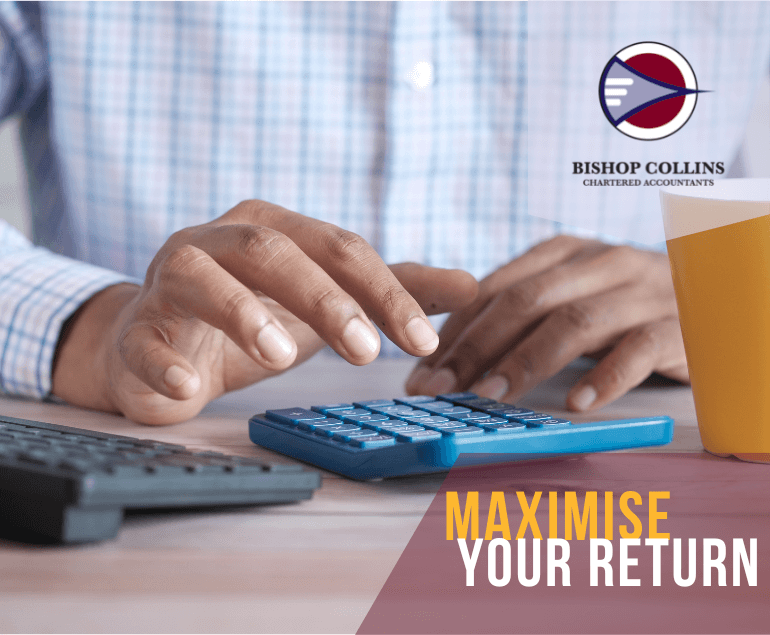What Can I Claim on Tax?
One of the most common questions accountants and tax agents are asked is undoubtedly – ‘What can I claim on my tax?’ Understanding what deductions you’re able to claim on your income tax return is far more complex than what most people expect. The standard accountants response will be:
“Section 8.1 of the Income Tax Assessment Act 1997 states:”
“You can deduct from your assessable income any loss or outgoing to the extent that:
- it is incurred in gaining or producing assessable income or
- it is necessarily incurred in carrying on a business for the purpose of gaining or producing your assessable income.”
Yep, clear as mud. But what makes it even more complicated are the exceptions, interpretations and provisions attached to this one seemingly simple statement.
For instance, there are a few areas where people wishing to claim on expenses could put them in a bit of hot water and even result in them being liable to pay more tax in the future. So it is important to ensure you have a good relationship with your accountant or tax agent, so they know what the best deductions are for you.
There are 3 main areas that an individual can claim a deduction:
- Work related expenses
- Other work related expenses and
- Other expenses
There is also a fourth area where individuals can claim a deduction and relate to those that are operating a business as a sole trader. This requires a separate review that will need to determine whether the business is a genuine business or a hobby. To be considered a genuine business by law, several criteria must be met, and if not, you will be unable to claim. For example, If it is a hobby, any loss from this hobby cannot be claimed against other income.
Work related expenses
To claim for work related expenses you must satisfy the Australian Tax Office’s “3 golden rules”:
- You must have spent the money yourself and weren’t reimbursed. Note: The taxation office can verify with an employer whether this has been reimbursed.
- The expenses must directly relate to earning your income. In this case, directly means if you did not purchase this item you would not have, or would have found it difficult to earn the income associated. Such as attending a meeting in person, where the travel is necessary. For this instance, the costs associated with the travel could be deductible.
- You must have a record to prove it (usually a receipt). You don’t always need a receipt, if the expense is reasonable and required by your employer and can be quantified or accepted by the ATO.
The trick to this area is that they can often have a private component to the expense such as Motor Vehicle and Working from home. In this instance you will need to calculate the private portion of the expense and remove it from your deductible expenses.
The most common expenses in this area are the following:
- Car expenses
- Travel expenses
- Clothing and Laundry
- Self-education expenses
Other Work related expenses
This area covers some of the more recent additions and less common deductible expenses and also the ones to be careful about. These include the following:
Working from home expenses
We often get asked which is the best tax-deductible work from home method to use? The answer depends on your circumstances and what expenses you incur working from home. Let’s look at the eligibility rules first.
Generally, to be able to make working from home claims you must be working from home to complete your employment duties not just carrying out minimal tasks such as checking emails. You must also incur additional expenses over and above your normal home living expenses as a result of working from home.
You are able to claim the additional running expenses of working from home. These work from home tax deductions include:
- Power expenses
- Decline in value of office furnishings and equipment
- Internet expenses
- Phone expenses
In some circumstances you are also able to claim occupancy expenses. These are :
- mortgage interest
- rent
- council and water rates
- land taxes
- house insurance premiums.
There’s a major caveat to this. You are only able to claim these expenses if you can show that it was necessary for you to work from home and the area you work from home is exclusive and not easily capable of being used for other purposes. Generally these working from home tax deductible expenses can be apportioned on a floor area basis. However, claiming these expenses may have the danger of causing your home to attract some level of Capital Gains Tax exposure.
If you satisfy these eligibility criteria then there are 3 methods to use:
- Fixed Rate method – The fixed rate is 52 cents for each hour worked from home and includes decline in value, Power and cleaning costs. You can also claim the work related part of Phone Internet and decline in other assets
- Actual Cost Method – This involves more serious calculation and apportionment of private Vs Working from home components. If you do not have a dedicated area at home then the additional costs will generally be minimal. This option is best for dedicated areas where high amounts of use and significant assets are used and required in the home office. A word of warning; again as those assets that are fully depreciated for work purposes when sold may attract a balancing adjustment where you may have to pay tax on the proceeds that exceed the remaining cost.
- Shortcut Method – The simplest for those that do not have a dedicated area and use the home for a small amount of time is this method only available up to 30 June 2022 and is a result of COVID. This method allows you to claim 80cents per hour you work from home. However, you cannot claim any other expenses even if you have new equipment.
Other expenses include the following with a link to the ATO website for more information:
- COVID-19 test expenses
- Phone, data and internet expenses
- Tools, equipment and other assets
- Union fees, subscriptions to associations and bargaining agents fees.
Other Expenses
Some expenses that don’t relate to your work or income producing activities can still attract a tax deduction and are well worth considering.
You claim these in your tax return at the specific item or as an ‘Other deduction’.
Common claims at this section include the following expenses with links to the ATO website for more detailed information:
- Cost of managing tax affairs– This is a very worthwhile expense in our opinion.
- Gifts and donations– Another worthwhile expense that the Tax Office would like to be part of.
- Interest, dividend and other investment income deductions
- Income protection insurance
My last parting piece of advice is that spending money to gain a tax deduction only with little or no other benefit is an unwise tax planning strategy. The first thing that should be considered when spending money is that the expense will create a greater benefit than just a tax deduction. These include making income and the ability to make more income in the future, efficiently using your time, the gift and great feeling of giving or a safety net for you and your family.
Contact the Experts at Bishop Collins
It’s simple; with Bishop Collins Accountants on the NSW Central Coast, there are no surprises. We listen. We educate. We deliver. We provide solutions to protect your assets and assist you with minimising your tax and moving toward your goals.
To learn how Bishop Collins can help you maximise your income tax return, visit bishopcollins.com.au or call (02) 4353 2333.






